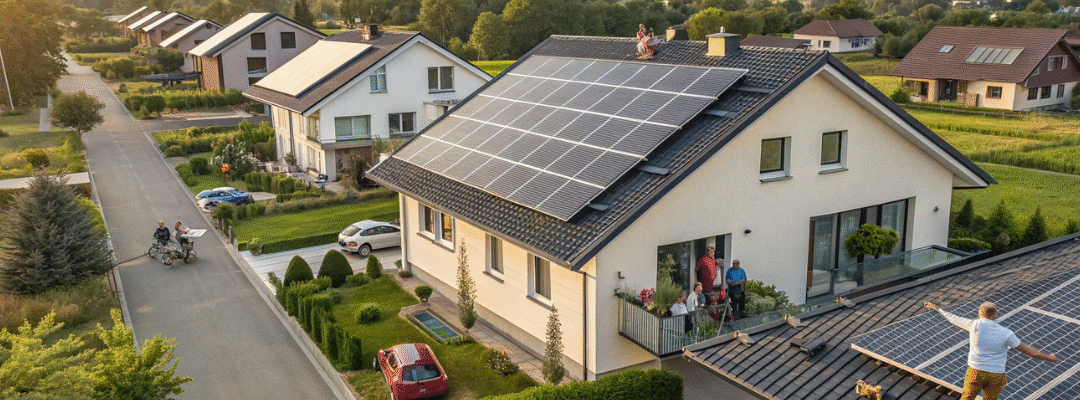Introduction: India’s Energy Shift
India’s power sector is going through a historic change. For decades, coal was the backbone of electricity generation. It fueled factories, railways, and homes — but at a high cost to both the economy and the environment.
Today, solar power has overtaken coal as the cheapest source of electricity in India. This isn’t just about being “green.” It’s about economics, energy security, and a cleaner future for millions of Indians.
The Cost Revolution: Solar Beats Coal
According to recent tariff auctions:
- Solar energy costs only ₹2.0–₹2.5 per kWh in large projects.
- Coal power costs ₹3.5–₹6 per kWh — and sometimes more when transport, pollution controls, and imported coal are added.
That means solar is now 30–50% cheaper than coal on a per-unit basis.
Why Solar Costs Are Falling
- Cheaper panels & inverters due to mass production and local manufacturing
- More efficient solar panels producing higher output
- Competitive bidding driving prices down
- Government incentives like subsidies, tax breaks, and accelerated depreciation
Why Coal Keeps Getting Costlier
While solar is becoming cheaper every year, coal plants face growing costs:
- Higher mining and transport expenses
- Pollution control systems (like flue gas desulfurizers) add costs
- Carbon penalties and taxes are on the rise
- Imported coal prices are volatile
- Coal plants need constant maintenance and face supply shortages
Coal is no longer the “cheap” option it once was.
Environmental & Health Benefits
Solar power isn’t just cheaper — it’s cleaner and safer.
- Every 1 MW of solar reduces 1,200–1,500 tons of CO₂ per year
- Coal plants cause air pollution, smog, and health issues like asthma and lung disease
- Solar supports India’s Paris Agreement goals and the 500 GW renewable energy target by 2030
Switching to solar saves money and saves lives.
Energy Security & Sustainability
Unlike coal, which depends on finite and often imported resources, solar energy is:
- Abundant — India gets 300+ sunny days a year
- Local — reduces dependence on imported coal and oil
- Decentralized — rooftop solar allows even villages to be energy-independent
This makes solar not just affordable, but also strategic for India’s future.
Impact on Consumers and Businesses
Cheaper solar benefits everyone:
- Households → Rooftop solar + net metering = drastically lower (sometimes zero) electricity bills
- Businesses → Lower power costs = higher profits and competitiveness
- Investors → Solar projects offer stable, long-term returns
Expert Insights: The Future of Power in India
Energy experts predict that by 2030:
- Renewables (mostly solar) will dominate new power projects
- Solar + storage + wind hybrids will provide 24/7 clean electricity
- Coal will gradually decline as older plants retire and investment shifts to green energy
“Solar isn’t just India’s cleanest power source — it’s now the most affordable. It’s the future of energy for homes, businesses, and the entire nation,” says Dr. Meera Patel, Energy Policy Expert.

